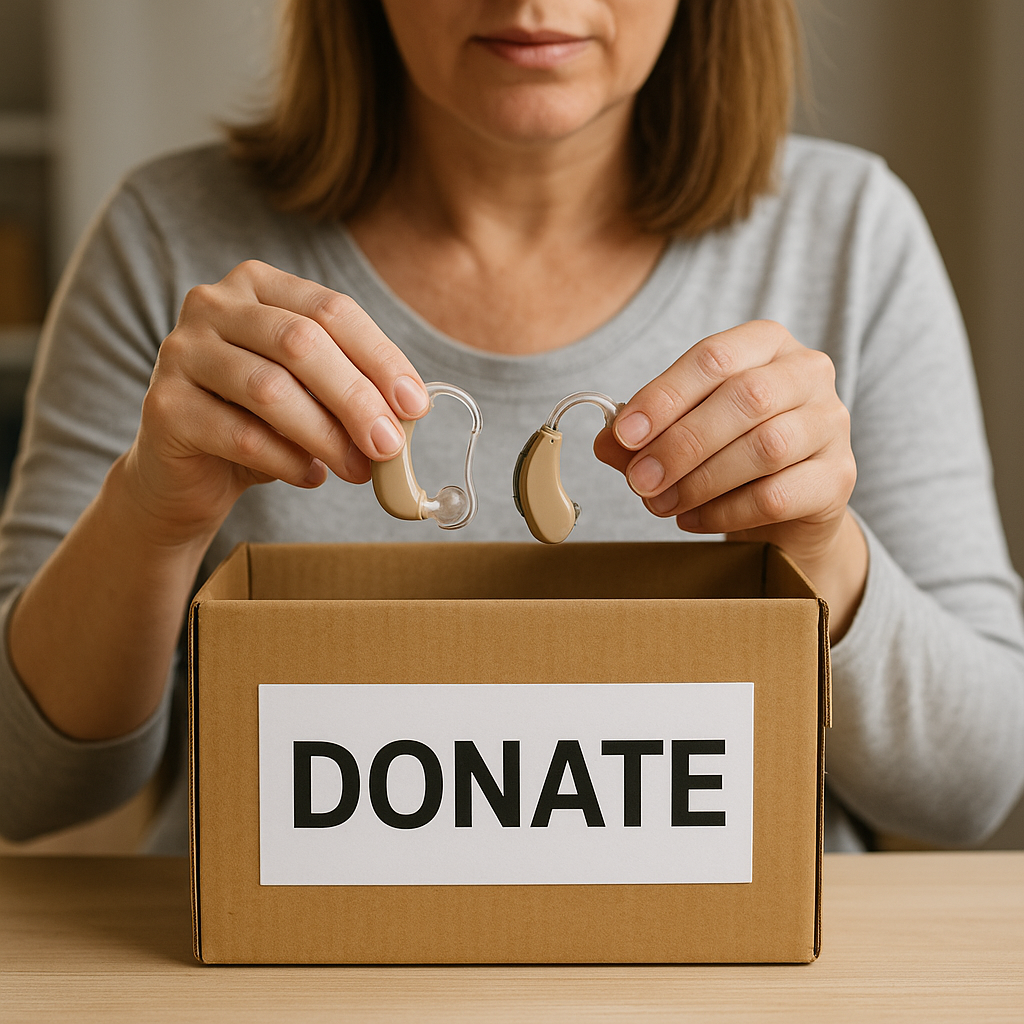Upgrading to a new pair of hearing aids can be exciting—better sound quality, new features, and improved comfort. But once you have your new devices, you may find yourself wondering: what should I do with my old hearing aids?
The good news is that hearing aids, even older or broken ones, don’t need to collect dust in a drawer or end up in the trash. Many programs exist to donate, recycle, or repurpose hearing aids, giving them a second life and helping someone else in need.
1. Donate Old Hearing Aids
Donating hearing aids is one of the most impactful things you can do. Millions of people worldwide struggle with hearing loss but cannot afford hearing aids. Your donation can make a meaningful difference.
Some trusted donation programs include:Donation Program How It Works More Info Hearing Aid Project Accepts hearing aids of any age/condition, refurbishes them, and fits them to people in need across the U.S. Hearing Aid Project Starkey Hearing Foundation Collects hearing aids for global mission work. Even broken aids can be refurbished. Starkey Hearing Foundation Local Charities & Missions Many local Lions Clubs, churches, and audiology clinics accept donations. Ask your local audiologist
💡 Tip: Before donating, remove the batteries and place them in a separate recycling container.
2. Recycle Old Hearing Aids
If your devices are beyond repair, recycling is the next best option. Hearing aids contain small electronic components and batteries that should never be thrown in the trash.
- Manufacturer recycling programs – Companies like Starkey and other manufacturers collect old devices for recycling.
- Audiology clinics – Many clinics have drop-off bins to ensure proper recycling of hearing aids and batteries.
- Electronic waste facilities – Your city may have an e-waste program that accepts hearing devices.
For batteries, check out our guide on hearing aid battery disposal to learn safe handling tips.
3. Keep Them as Backups
Even if your old hearing aids aren’t your primary set anymore, they can still serve a purpose:
- Backup option – Handy if your new pair needs repairs or adjustments.
- Travel set – Keep them in your suitcase so you’re never without amplification on a trip.
- Temporary use for friends or family – In some cases, a loved one with hearing loss may benefit from using your older devices while waiting for their own. However, hearing aids need to be reprogrammed to match the user’s hearing loss. Learn more in our article: Can Hearing Aids Be Reprogrammed?.
If you do decide to keep them, store them in a dry, protective case and make sure tubing, domes, or wax traps are fresh so they’re ready when you need the).
4. Why You Shouldn’t Throw Away Hearing Aids
Hearing aids should never be tossed in the trash. Here’s why:
- Environmental concerns – Hearing aids contain plastics, metals, and electronic parts that don’t belong in landfills.
- Battery safety – Disposable zinc-air or lithium-ion batteries can leak or cause harm if not properly disposed of.
- Missed opportunity – Even broken aids can often be refurbished to help someone in need.
Instead, choose to donate, recycle, or reuse.
Final Thoughts
Your old hearing aids may no longer be your daily companions, but they still hold value. By donating or recycling them, you’re not only reducing waste but also making hearing more accessible to someone else.
Next time you upgrade, remember: old hearing aids don’t belong in the trash—they belong in someone else’s hands, or responsibly recycled.
FAQs About Old Hearing Aids
Can I donate broken hearing aids?
Yes. Programs like Starkey and the Hearing Aid Project accept broken aids and refurbish them for reuse.
Where can I recycle hearing aids locally?
Check with your audiologist, local Lions Club, or your city’s electronic waste facility.
Should I keep my old hearing aids as backups?
Absolutely. Many people keep them as emergency spares in case their new devices need repairs.
Do I need to remove batteries before donating?
Yes, always remove the batteries and recycle them separately.

